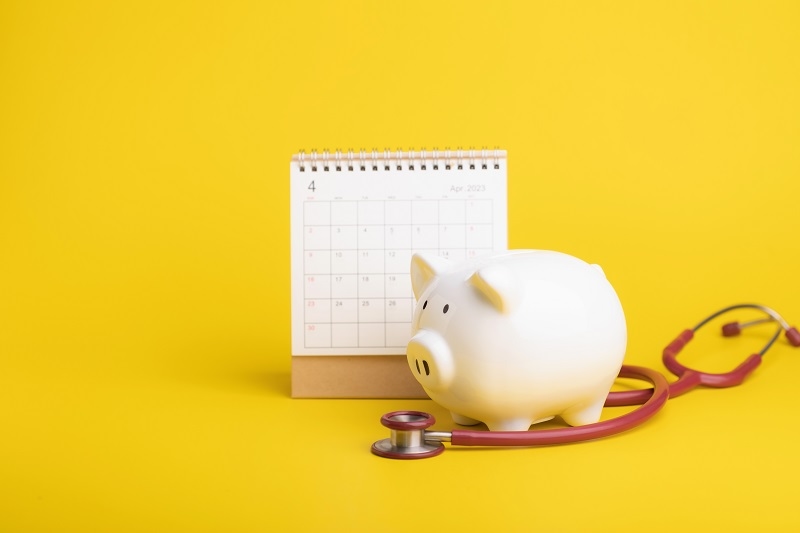
Sometimes it is so confusing to manage your money. Bills, savings, investments, and unforeseen costs tend to stack up, and we find ourselves asking the question of whether we are heading in the correct direction or not. This is why a financial health check-up at least once every six months may be a life-saving factor. It is like going to a doctor, only that it is your money. Regular checkups keep you in control, identify problems at the early stages, and make corrections before minor problems become major problems.
A financial checkup does not only entail viewing your bank account. It is the ultimate exploration of your financial well-being, as it can show you where you are and what you need to do. When you have a financial checkup, you review your savings, debts, investments, insurance, and general financial plan. It helps to keep you in line with both your short-term and your long-term objectives.
Financial well-being influences all other areas of your life, including the level of stress you experience, as well as your ability to achieve your dreams, such as owning a home or retiring comfortably. Financial health check enables you to take a position on where you are and make informed decisions. It avoids any unexpected situations, makes you feel sure, and enables you to see the progress over time.
It is best to do a financial check-up at least once in six months. It is common enough to identify problems before they develop and take time to make changes and experience the outcome. This practice is one that will keep you proactive rather than reactive on the issue of money.
The key to financial health is knowing your cash flow. It is also important to know the origin and destiny of your money so as to make wise choices.
Begin with the enumeration of all sources of income. This incorporates your earnings, freelance, rental, or side jobs. Knowledge of your income enables you to plan on how to spend, save, and invest. In case your income has fluctuated since your last checkup, then you should revise your financial plan.
Then, examine your expenditure pattern. Separate your spending into groups such as housing, groceries, transporting goods, entertainment, and personal care. Seek places where you may reduce. Any minor changes can liberate money to spend on saving or debt. An in-depth examination of costs can help you get out of the needless stress and remain in control.
Having considered revenues and expenditures, prepare a plain spending plan or budget. A budget allocation is allocated to essential, savings, investments, and discretionary spending. With a simple plan, you will not spend the money aimlessly, and the money will also make you feel in control.
The debt may be a burden when not done meticulously. Financial health assessment involves an appreciation of all debts and developing a strategy to handle them well.
Create a list of all the debts: credit cards, student loans, car loans, and mortgages. Add balances, interest rates, and minimum payments. This is because knowing the precise amounts will enable you to give priority to the debts to be paid.
Debts such as credit cards are at a high interest rate and can easily get out of control. When undergoing a financial check-up, consider whether it is worth consolidating debts or negotiating low rates. Listening to the rates of interest can save you a lot of money in the long term.
Design a way to cut down on your debts. Such techniques as the debt snowball or debt avalanche can be used. The snowball method is used to settle small debts, and the avalanche method is used to settle debts with high interest rates.
Financial health is essential and includes savings. They offer protection, tranquility of mind, and a cushion against the turbulent cost.
An emergency fund is money set aside for sudden expenses like medical bills, car repairs, or job loss. Financial experts recommend having three to six months of living expenses saved. During a financial checkup, review your emergency fund and adjust it.
Check if your savings are aligned with your short-term and long-term goals. Are you saving for a vacation, a home, retirement, or education? Regular reviews help ensure you are on track and give you motivation to stay disciplined.

Investments and retirement accounts play a big role in long-term financial security. Regular assessment ensures your portfolio aligns with your goals and risk tolerance.
Check your 401(k), IRA, or other retirement accounts. Ensure contributions are on track and consider increasing them if possible. Evaluating fees and returns periodically ensures your retirement plan remains strong.
Change in life and change in investments. Should you change your goals or risk level, then change your portfolio too. Consistent evaluations eliminate unexpectedness and do not keep you astray.
Insurance is a financial aspect of health. It covers you against unforeseen costs that may ruin your financial plans.
Make sure that your health insurance plan suits you. Check deductibles, copays, and out-of-pocket maximums. Your health or family situation might change, which might require some modifications to your coverage.
Life and disability insurance are a source of financial security for you and your family. Review policies to verify that there is adequate coverage. Adjust the coverage with the change in income or family circumstances.
Homeowners, renters, auto, and other insurance policies are not to be forgotten. Checking these regularly will make sure that you are not paying too much or that you are not underinsured.
The credit score influences your capacity to take a loan, rent a house, and even to be employed. Financial health assessment involves checking your credit status.
Fetch your credit scores from the big three. Look for mistakes or any kind of suspiciousness. Mistakes can be rectified to boost your credit score and finances.
The credit behavior affects your score in financial health. Monitor your score patterns and practice on them in case of need. A high score opens the interest rates and financial opportunities.
Financial checkup once in six months is not merely a task but an agreement to your future. Checking on income, expenses, debts, savings, investments, insurance, and credit, as well as goals, will help you keep track of your money. It eases stress, helps to gain confidence, and achieve both long-term and short-term objectives. With the help of a financial health checklist and a regular evaluation of your financial health score, you generate a balanced and safe life in terms of financial matters. Having this checkup become a routine practice will enable you to make better decisions and seize opportunities, and live peacefully.
This content was created by AI